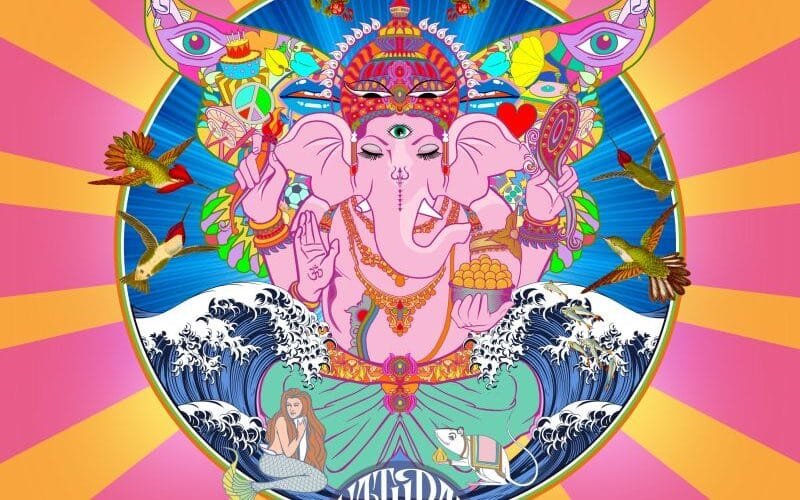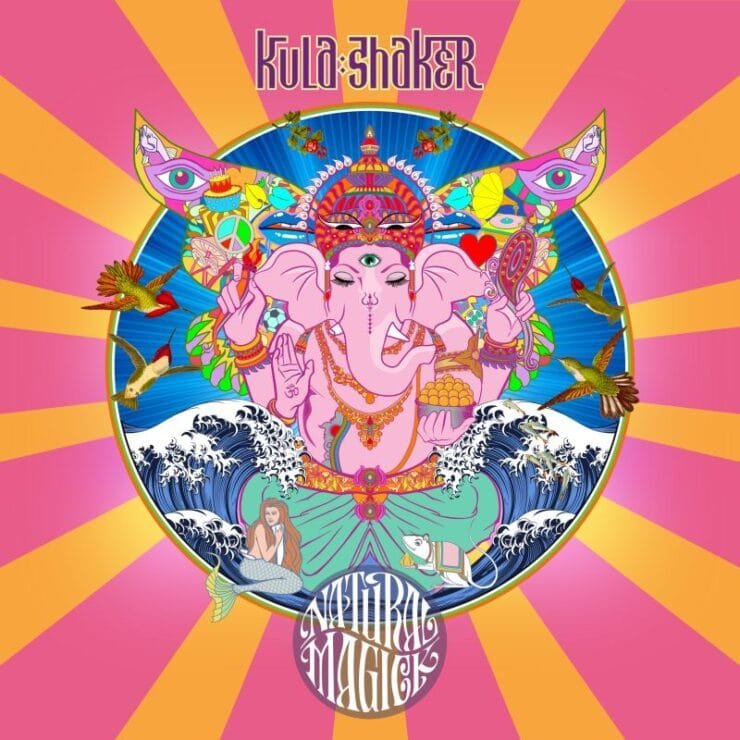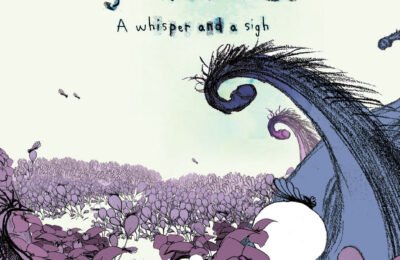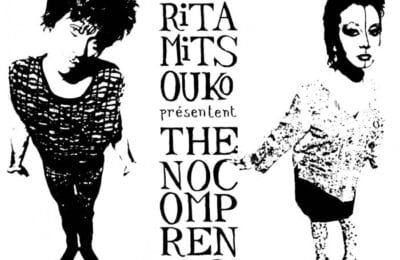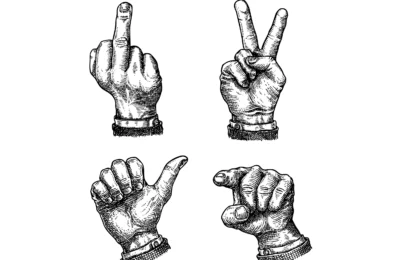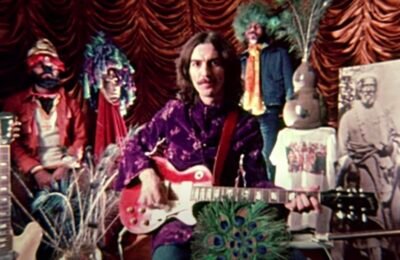Believe it or not, Natural Magick almost slipped under my radar. I missed the news that original keyboardist Jay Darlington had rejoined Kula Shaker, and with him, the band quietly released an album that rekindles their signature blend of psychedelic rock, spiritual flair, and vintage swagger.
George Harrison Would Approve
Of all the Britpop trends in the nineties, Kula Shaker holds a special place in my heart. I love a good psychedelic vibe. I also love a band that knows how to blur the boundaries between genres—and Kula Shaker does it perfectly. They managed to create a sound of their own that even convinced George Harrison, who was not known for favouring emerging musical trends later in his life.
Just like the quiet Beatle, Crispian Mills—the band’s frontman—went on a spiritual journey to India in 1993 and came back with a different outlook on life, earth, and the universe. And of course, it impacted the music of his band—The Kays, at the time. They began introducing Indian instruments like sitar, tamboura, and tabla into a mix of fuzzy Western guitars, coloured with psychedelic tones. Soon enough, the sound of the band evolved—for the better. To mark the shift from “a rubbish band with a rubbish name,” they changed their name in 1995, inspired by a ninth-century emperor and holy man: King Kulashekhara.
From ‘K’ to Controversy
This evolution would prove to be a lucky one. In the months following the name change, the band signed a contract and released their debut album K in 1996, which was an instant success. They followed with Peasants, Pigs & Astronauts in 1999. But Kula Shaker found themselves in the midst of media controversy a few years earlier, in 1997, after Crispian Mills made comments about the “beauty” of the swastika. He was referring to the symbol’s Indian origins, but due to its Nazi connotations, the story made headlines and wrongly linked the band with far-right ideologies. Mills published a right of reply, apologising for the comment and clarifying his position against any form of totalitarianism. Unfortunately, the damage was done, and the new album only saw mild success. Shortly after, the members went their separate ways.
Rediscovering the Magic
That’s where I kind of lost track. The band reformed in the mid-noughties, but without Jay Darlington—who had gone on to play with Oasis. They released four albums without him. Nice albums, but not especially exciting to me, apart from K 2.0 in 2016, which was issued 20 years after their debut. In 2022, they released the frankly weird 1st Congregational Church of Eternal Love (And Free Hugs). So when Jay rejoined the band, I wasn’t really paying attention. When Natural Magick came out, I probably only had eyes for the new album by The Smile. But as we say in France, c’est reculer pour mieux sauter—a step back only to leap in better.
Natural Magick came to me refreshingly good, transporting me 25 years back. The sound is that energetic, healthy blend of fuzzy guitars and psychedelic rock with Indian influences. The progression of the album is flawless. There’s no downtime. It starts with a kick: Gaslighting, a modern take on the Gil Scott-Heron classic The Revolution Will Not Be Televised. It’s followed by the earworm-esque Waves, released as the first single. Natural Magick, the title track, arrives as a potential anthem for future live shows. When Indian Record Player started, I was already up out of my seat breaking into a few moves (air-guitar / air-drums kind of moves)… Anyway, you get my point—no downtime, nothing boring.
Eastern Sounds and Spiritual Echoes
True to their signature sound, Kula Shaker blends Indian music and instrumentation throughout the album. Chura Liya may be a bit unusual, as the band goes full-on Bollywood, with a duet between Crispian Mills and a Laboni Barua performing lyrics in Hindi. Indian Record Player refers to multiple elements of Indian popular culture in its lyrics, and features sitars in the background along with a very Indian-sounding string section. Something Dangerous is a definitive throwback to the psychedelic sixties, full of strong George Harrison vibes. Happy Birthday is a mesmerising piece, mixing Indian melodies with lyrics in both Sanskrit and English.
Childlike Rebellion
Idontwannapaymytaxes and F-Bombs go hand in hand. They’re the album’s strong, rebellious anti-war moments. “I don’t wanna pay taxes, I don’t wanna pay for World War III,” sings Crispian in the first… before dropping f-bombs in the next with a long chant of “fuck wars.” At first I thought, “Jaysus… sounds like something a ten-year-old would write.” I mean, of course I strongly agree with the sentiment, but c’mon… And then I read an interview where Crispian proudly recounts his ten-year-old kid grabbing a guitar and improvising those very lyrics. He liked it so much, he had to write a song around it. In the end, these two fun little nuggets are upbeat and very likeable.
A Return Worth Hearing
Of course, Natural Magick isn’t Kula Shaker’s best work. It won’t be the album we remember when we look back on their career. But it is a damn good album—especially for a nostalgic teenager of the nineties. A good album like they used to make, with the occasional slow-dance track. Don’t get me wrong: it doesn’t sound dated or old. It just feels good to hear Kula Shaker sounding like themselves at their best. If you’ve never heard of them, and you like a good psychedelic band, I strongly recommend you give them a listen.
